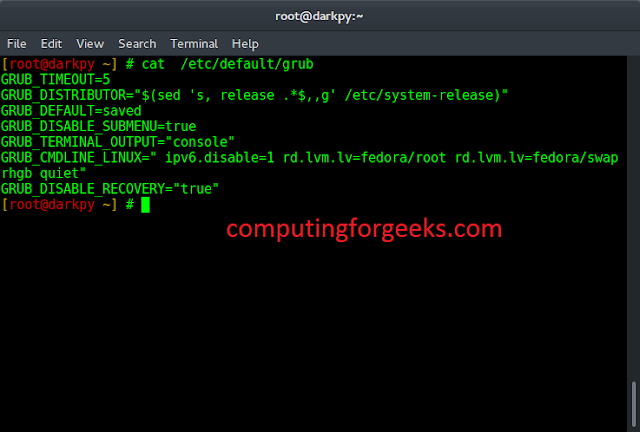Fermat numbers are non-negative odd numbers which is valid for all values of k>=0. Only the first seven terms of the sequence are known till date. First, five terms of the series are prime but rest of them are not. The kth term of Fermat number is represented as
The sequence:
3, 5, 17, 257, 65537, 4294967297, 18446744073709551617
For a given N, the task is to find the first N Fermat numbers.
Examples:
Input: N = 4
Output: 3, 5, 17, 257
Input: N = 7
Output : 3, 5, 17, 257, 65537, 4294967297, 18446744073709551617
Approach :
Using the above-mentioned formula we will find the Nth term of the series.
Below is the implementation of the above approach :
C++
// CPP program to print fermat numbers#include <bits/stdc++.h>#include <boost/multiprecision/cpp_int.hpp>using namespace boost::multiprecision;#define llu int128_tusing namespace std;/* Iterative Function to calculate (x^y) in O(log y) */llu power(llu x, llu y){ llu res = 1; // Initialize result while (y > 0) { // If y is odd, multiply x with the result if (y & 1) res = res * x; // n must be even now y = y >> 1; // y = y/2 x = x * x; // Change x to x^2 } return res;}// Function to find nth fermat number llu Fermat(llu i){ // 2 to the power i llu power2_i = power(2, i); // 2 to the power 2^i llu power2_2_i = power(2, power2_i); return power2_2_i + 1;}// Function to find first n Fermat numbersvoid Fermat_Number(llu n){ for (llu i = 0; i < n; i++) { // Calculate 2^2^i cout << Fermat(i); if(i!=n-1) cout << ", "; }}// Driver codeint main(){ llu n = 7; // Function call Fermat_Number(n); return 0;} |
Java
// Java program to print fermat numbersimport java.util.*;class GFG{ /* Iterative Function to calcate (x^y) in O(log y) */ static long power(long x, long y) { long res = 1; // Initialize rest while (y > 0) { // If y is odd, mtiply x with the rest if ((y & 1) != 0) res = res * x; // n must be even now y = y >> 1; // y = y/2 x = x * x; // Change x to x^2 } return res; } // Function to find nth fermat number static long Fermat(long i) { // 2 to the power i long power2_i = power(2, i); // 2 to the power 2^i long power2_2_i = power(2, power2_i); return power2_2_i + 1; } // Function to find first n Fermat numbers static void Fermat_Number(long n) { for (long i = 0; i < n; i++) { // Calcate 2^2^i System.out.print(Fermat(i)); if(i!=n-1) System.out.print(", "); } } // Driver code public static void main(String[] args) { long n = 7; // Function call Fermat_Number(n); }}// This code is contributed by phasing17 |
Python3
# Python3 program to print fermat numbers# Iterative Function to calculate (x^y) in O(log y) def power(x, y): res = 1 # Initialize result while (y > 0): # If y is odd, # multiply x with the result if (y & 1): res = res * x # n must be even now y = y >> 1 # y = y/2 x = x * x # Change x to x^2 return res# Function to find nth fermat numberdef Fermat(i): # 2 to the power i power2_i = power(2, i) # 2 to the power 2^i power2_2_i = power(2, power2_i) return power2_2_i + 1# Function to find first n Fermat numbersdef Fermat_Number(n): for i in range(n): # Calculate 2^2^i print(Fermat(i), end = "") if(i != n - 1): print(end = ", ")# Driver coden = 7# Function callFermat_Number(n)# This code is contributed by Mohit Kumar |
C#
// C# program to print fermat numbersusing System;using System.Collections.Generic;class GFG{ /* Iterative Function to calculate (x^y) in O(log y) */ static ulong power(ulong x, ulong y) { ulong res = 1; // Initialize result while (y > 0) { // If y is odd, multiply x with the result if ((y & 1) != 0) res = res * x; // n must be even now y = y >> 1; // y = y/2 x = x * x; // Change x to x^2 } return res; } // Function to find nth fermat number static ulong Fermat(ulong i) { // 2 to the power i ulong power2_i = power(2ul, i); // 2 to the power 2^i ulong power2_2_i = power(2ul, power2_i); return power2_2_i + 1; } // Function to find first n Fermat numbers static void Fermat_Number(ulong n) { for (ulong i = 0ul; i < n; i++) { // Calculate 2^2^i Console.Write(Fermat(i)); if(i!=n-1) Console.Write(", "); } } // Driver code public static void Main(string[] args) { ulong n = 7; // Function call Fermat_Number(n); }}// This code is contributed by phasing17 |
Javascript
<script>// Javascript program to print fermat numbers/* Iterative Function to calculate (x^y) in O(log y) */function power(x, y){ let res = 1; // Initialize result while (y > 0) { // If y is odd, multiply x with the result if (y & 1) res = res * x; // n must be even now y = y >> 1; // y = y/2 x = x * x; // Change x to x^2 } return res;}// Function to find nth fermat number function Fermat(i){ // 2 to the power i let power2_i = power(2, i); // 2 to the power 2^i let power2_2_i = power(2, power2_i); return power2_2_i + 1;}// Function to find first n Fermat numbersfunction Fermat_Number(n){ for (let i = 0; i < n; i++) { // Calculate 2^2^i document.write(Fermat(i)); if(i!=n-1) document.write(", "); }}// Driver code let n = 7; // Function call Fermat_Number(n);</script> |
Output:
3, 5, 17, 257, 65537, 4294967297, 18446744073709551617
Time Complexity: O(n * log n)
Auxiliary Space: O(1)
Reference:https://en.wikipedia.org/wiki/Fermat_number
Ready to dive in? Explore our Free Demo Content and join our DSA course, trusted by over 100,000 neveropen!





